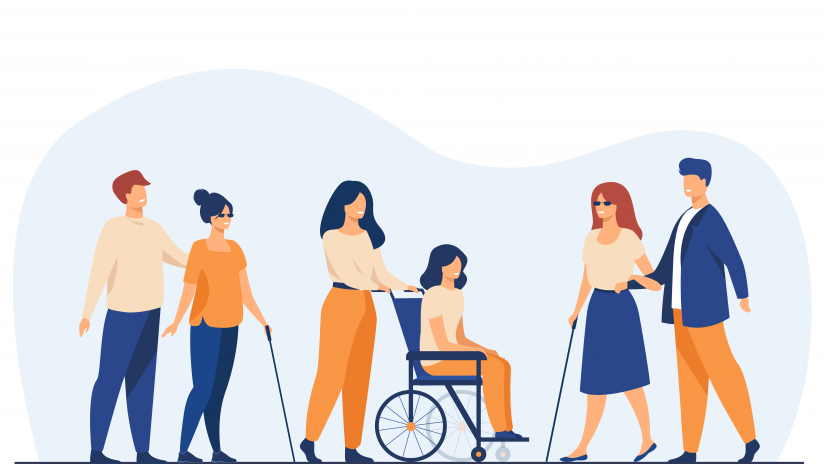An alumni of the "School for Young Social Researchers" of the Institute of Democratic Initiatives prepared a study on "Integration of Persons with Disabilities into Society: Challenges and Criteria".
The purpose of the research is to examine the difficulties and criteria to be expected in the integration of people with disabilities into society, and to determine the impact of their financial situation on their integration into society.
The research includes the standards that should be expected for the integration of people with disabilities into society, the researches conducted by international organizations in this field, and the results of an online survey conducted with 39 people with disabilities living in Baku.
During this research work, data was obtained by several methods. In order to answer the research question, an online survey was conducted among Persons with Disabilities living in Baku. As a result of the survey, the answers of 39 respondents were collected and analyzed. Also, second-hand information was obtained for the same purpose. The second-hand data was used for the detailed analysis of the standards and norms that should be expected for the integration of PWDs into the society, and the collected first-hand data was used for the analysis of the economic aspects and financial situation of integration in the local conditions in Baku.
In the survey conducted among 39 people, the following points attract attention:
When respondents assessed whether they experienced discrimination during participation in social life, 73.6% of respondents chose the answer - yes.
Looking at the answers received for the analysis of the respondents' relationship with their social circle, the following picture emerges. More than half of the respondents - 56.7% can participate in their social circle at best once a month, and 8.1% say that they are generally isolated from the social circle. The majority of persons with disabilities indicated the infrastructure as a main factor preventing their public participation. (53.8%)
The results of the survey show that the income level of the majority of respondents (41.0%) has a high influence on the choice of transport, and 35.9% of the respondents said that they partially change their choice of transport depending on the income level. 19 people (50.0%) of the respondents used "taxi", 11 people (28.9%) "bus", 5 people (13.2%) "private car", 3 people (7.9%) "metro".
Respondents were given the opportunity to choose several answers in the following question - "Why do you use the vehicle you mentioned more often?", and 38.4% said that public transport was not available, and 46.1% said that the vehicle they mentioned was more comfortable. From these statistics, it can be seen that there is a causal relationship between the public transport choices of the respondents and the factor of public transport accessibility. Thus, the incompatibility of public transport with PWDs can lead to their using a more expensive form of transport.
Based on the obtained results, it was determined that people with disabilities living in Azerbaijan have to use more expensive transportation due to infrastructure problems, which may have a negative impact on their social participation.
You can find out more information in our research paper.
The research is only available in Azerbaijani.
